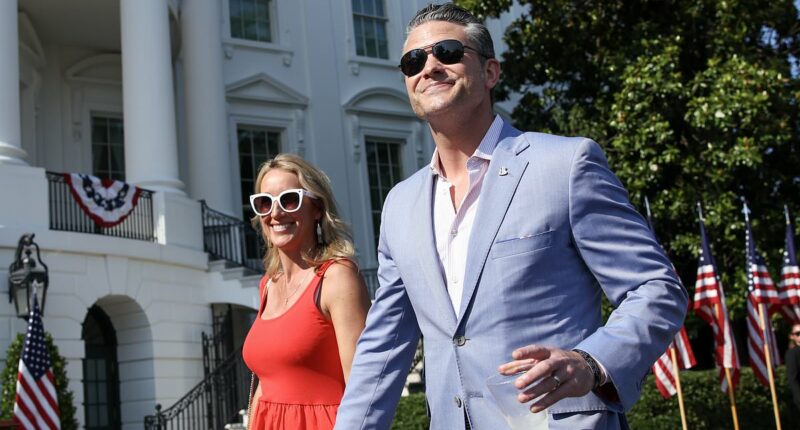Share this @internewscast.com
Pete Hegseth has declared that America’s leading news organizations will lose their Pentagon access unless their reporters accept a controversial new compliance policy that challenges the First Amendment. The Department of War now requires all journalists with press access to adhere to an agreement that prevents military staff from sharing ‘unauthorized disclosures’ with the press.

Journalists who opt not to sign this new policy must return their press badges and vacate their offices by 5 p.m. on Tuesday. The Daily Mail, along with other major media outlets like CNN, The New York Times, the Washington Post, The Wall Street Journal, and The Atlantic, have collectively decided not to comply with the agreement.

The policy restricts reporters from liaising with military sources and states that asking military personnel to share unauthorized information won’t be protected by the First Amendment. Journalists will also be restricted from entering large portions of the Pentagon without a chaperone, and any press pass could be rescinded if a reporter seeks unapproved information from the Secretary of War.

These new stringent rules follow as the Daily Mail uncovered Hegseth’s increasing paranoia, which led to him dismissing staff for engaging with journalists and erupting in furious outbursts over his safety concerns. According to the Pentagon Press Association, the policy sends a striking ‘message of intimidation’ to those in the Department of War considering speaking to the media without Hegseth’s team’s authorization.

On Monday, The Associated Press, Reuters, and the generally supportive Newsmax declared their refusal to sign the agreement as well. Newsmax stated that the requirements are excessive and expressed hope that the Pentagon would reconsider its stance.

Reuters also issued a statement emphasizing their commitment to providing accurate, impartial, and independent reporting, asserting that they firmly believe in the constitutional protections for the press. They stressed that the unrestricted flow of information and public-serving journalism should be preserved, noting that the Pentagon’s latest restrictions undermine these core values.

The opposing outlets say the policy threatens to punish them for routine news gathering protected by the First Amendment. Hegseth addressed the criticism surrounding the new policy, writing on X: ‘Pentagon access is a privilege, not a right.’ Chief Pentagon spokesman Sean Parnell said the rules establish ‘common sense media procedures.’

‘The policy does not ask for them to agree, just to acknowledge that they understand what our policy is,’ Parnell said. ‘This has caused reporters to have a full blown meltdown, crying victim online. We stand by our policy because it’s what’s best for our troops and the national security of this country.’ Pentagon reporters say signing the statement amounts to admitting that reporting any information that hasn’t been government-approved is harming national security.

‘That’s simply not true,’ said David Schulz, director of Yale University’s Media Freedom and Information Access Clinic. Journalists have said they have long worn badges and do not access classified areas, nor do they report information that risks putting any Americans in harm’s way. ‘The Pentagon certainly has the right to make its own policies, within the constraints of the law,’ the Pentagon Press Association said on Monday.

‘There is no need or justification, however, for it to require reporters to affirm their understanding of vague, likely unconstitutional policies as a precondition to reporting from Pentagon facilities.’ Critics have noted Hegseth’s crackdown on reporters comes after his own major blunder and security breach in March, when he released war plans in a Signal chat without realizing the editor of The Atlantic had been unintentionally added to the group. Hegseth listed weapons systems and a timeline for the attack on Iran-backed Houthis in Yemen in the chat, but argued no classified information was shared .









